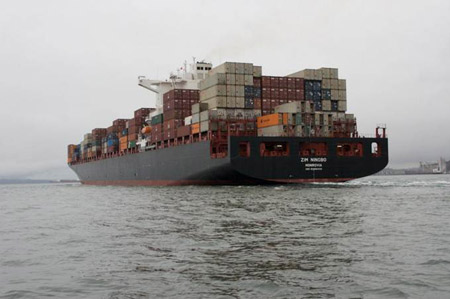U.S. Investors Put Brazil Ag Back In Their Sights
Category: Miscellaneous
 (Agriculture.com) – Is this the beginning of the return of large U.S. investments in Brazilian farmland? Before 2014, when commodities prices dropped, there was major investment in this space.
(Agriculture.com) – Is this the beginning of the return of large U.S. investments in Brazilian farmland? Before 2014, when commodities prices dropped, there was major investment in this space.
The Sequoia Fund, an investment group recognized for having one of the best long-term track records in Wall Street, announced recently a purchase of 5.1% of BrasilAgro’s stocks in a deal of $9.8 million.
The Brazilian company operates nearly 617,776 acres in Brazil and Paraguay, an area similar in size to the state of Rhode Island.
This news comes on the heels of Kopernik, a Tampa, Florida-based firm purchasing 5% holdings of SLC (a Brazilian farm corporation) a month ago.
SLC Agrícola operates 1.1 million acres, an area slightly smaller than the state of New Jersey, mostly with corn, soybeans, and cotton in several regions of Brazil.
Analysts say that these investors are looking into the possibilities of expansion of agriculture in South America. Another important indicator is that U.S. investors are back to Brazil.
In fact, right after the replacement of ex-President Dilma Roussef with Michel Temer, there was a recovery of foreign investment on Brazil’s stock exchange, Bovespa, with a liquid surplus of R$ 1.16 billion in June.
Recently, the global chief of emerging market at BlackRock, one of the major asset managers in the world, said major investors will return to Brazil. “With a new government, there are new opportunities for economic growth and recovery in Brazil. I believe in a 2% rate for 2017 with floating currency, controlled inflation and expenditures,” said Will Landers in a press conference after a meeting with Brazilian officials in New York.
The purchase of the fund managed by New York-based Ruane, Cunnif and Goldfarb makes Sequoia the third-biggest investor in BrasilAgro right after Argentine giant Cresud, which has 41% of that corporation.
The purchase happened as BrasilAgro reported a loss of R$17.3 million for the April-to-June quarter, compared with earnings of R$166.2 million a year before, one day after Julio Piza resigned as chief executive. A prolonged drought in the northeastern states of Brazil was blamed for the losses.
The Sequoia Fund announced that the reason for the deal “is strictly investment purposes, and there is no intention to change [BrasilAgro’s] control nor composition of the administrative structure.”
Consulted by Agriculture.com, the press office of SLC Agrícola, a company headquartered in Porto Alegre, Rio Grande do Sul, also said that new holdings “are normal stock exchange purchases and do not have a right for a seat at the council nor have influence on management.” SLC is listed in São Paulo’s Bovespa Stock Exchange.
But there is speculation in the market that some investors may be preparing for the approval of easing restrictions on foreign ownership of land in both Brazil and Argentina in the coming months. This might be a priority for the Macri and Temer administrations to attract investments.
“The issue of investments in the farm sector in Brazil is more attractive than in other countries because there is already some infrastructure, something that is even more precarious in African countries, for instance, but also offers good expansion opportunities, which is not available anymore in Europe or the United States,” said Frederico Schmidt of Priore Investimentos, a Curitiba-based consultancy, offering analysis to Agriculture.com. Added to that, there was the advantage of the Brazilian Real strengthening about 20% against the U.S dollar after the removal of former president Dilma Rousseff.
Another recognized international investment group in South America’s farm operations is the Soros Fund Management, owner of Adecoagro, which produces in Brazil and Argentina.




